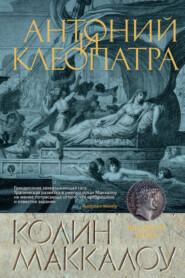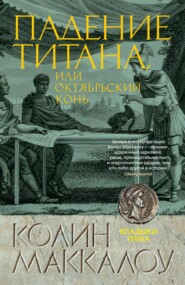По всем вопросам обращайтесь на: info@litportal.ru
(©) 2003-2024.
✖
On, Off
Автор
Год написания книги
2018
Настройки чтения
Размер шрифта
Высота строк
Поля
“Don’t you go makin’ mountains outta molehills!” Otis cried.
“I gotta see Mohammed,” was Wesley’s rejoinder. He zipped himself into his black imitation leather jacket with the white fist painted on its back.
“You’re not seeing Mohammed, boy, you’re going to work this minute! You do not qualify for Welfare and I am not boarding you for nothing!” Celeste snapped. “Go on, shoo!”
Sighing, Wesley divested himself of his passport to Mohammed el Nesr’s headquarters at 18 Fifteenth Street, put on a down jacket instead, and hied himself off in his battered 1953 De Soto to Parson Surgical Instruments. Where, if he had bothered to enquire, which he didn’t, he could have discovered that his dexterity at crafting mosquito forceps had more than once made the difference between continued employment and a pink slip.
For Carmine the day was depressing and bitter; the missing persons files that fitted the Mercedes description were beginning to arrive on his desk. Six more, to be exact, one every two months throughout 1964: Waterbury, Holloman, Middletown, Danbury, Meriden and Torrington. The only place where he had repeated himself in nearly two years was Norwalk. Every girl was sixteen years old and of mixed blood originating in the Caribbean, though never a family of recent immigrants. Puerto Rico, Jamaica, the Bahamas, Trinidad, Martinique, Cuba. Five feet tall, stunningly pretty, of mature figure, extremely carefully reared. All the new arrivals on his desk were Catholic, though not all had gone to Catholic schools. None had had a boyfriend, all were straight-A students and popular with their classmates. More importantly, none had confided in a friend or a member of her family about having a new friend, or a new kind of good deed to practise, or even a new acquaintance.
At 3 p.m. he climbed alone into the Ford and started down I–95 to Norwalk, where Lieutenant Joe Brown had arranged for him to see the Alvarez family in their home. He couldn’t be there himself, he was quick to add; Carmine knew why. Joe couldn’t face another session with the Alvarezes.
The house was a three-family one that Jose Alvarez owned; he lived in the bottom floor apartment with his wife and children, and rented out the middle and top floor apartments. This was how all working people aspired to live: virtually rent free themselves, the middle apartment paying the mortgage and utilities, and the top one bringing in that little extra against repairs as well as to save for rainy days. Living on the bottom floor, they had the backyard, half of the four-car garage, and the basement for their own use. And a landlord who lived on the premises was able to keep a stern eye on the tenants.
Like all its neighbors, the house was painted a darkish grey, had double windows whose outer sets were replaced in summer by insect screens, a front porch right on the sidewalk, but a big backyard surrounded by a high chain link fence; the garage sat across its back beyond a driveway down one side of the house. As Carmine stood on the oak-lined street looking, he could hear the baying of a large dog; scant chance of anyone’s breaking in via the back porch with a hound on patrol.
The priest opened the front door, which was separate from the door leading to the two upstairs apartments. Carmine gave the cleric a smile and shrugged himself out of his overcoat.
“I’m sorry to have to do this, Father,” he said. “My name is Carmine Delmonico. Should I be Lieutenant or Carmine in there?”
After some consideration the priest said, “Lieutenant would be better, I think. I’m Bart Tesoriero.”
“Do you need to speak Spanish in your parish?”
Father Tesoriero opened the inner door. “No, though I do have a fair number of Hispanic parishioners. It’s an old part of town, they’ve all been here a long time. No Hell’s Kitchen, that’s for sure.”
The living room, quite a large one in this bottom apartment, was full of people and silence. Himself of Latin origins, Carmine knew that relatives would have come from everywhere to be with the Alvarezes in their time of need. This meant that he knew how to deal with them, but he didn’t have to. The priest ushered all save the immediate family into the kitchen, with a woman who looked like the grandmother leading a toddling boy.
That left Jose Alvarez, his wife, Concita, their eldest son, Luis, and three daughters—Maria, Dolores and Teresa—in the room. Father Tesoriero put Carmine in the best chair, and himself sat between husband and wife.
It was a home of lace doilies, lace curtains under drapes of synthetic velvet, respectable well-worn furniture and floors tiled in terracotta beneath busy rugs. The walls bore pictures of the Last Supper, the Sacred Heart of Jesus, Mary holding the Christ Child, and many framed photographs of the family. Vases of flowers were everywhere, each bearing a card; the perfume of freesias and jonquils was so heavy Carmine felt choked. Where did florists get them at this time of year? On the center of the mantelpiece was a silverframed photograph of Mercedes, in front of it a burning candle in a red glass bowl.
The first thing Carmine did when he entered a house of grief was to imagine how the bereaved must have looked before tragedy struck. Nigh impossible here, but nothing could alter bone structure. Strikingly handsome, all of them, and all with that café au lait skin color. A little Negro, a little Caribbean Indian, a great deal of Spanish. The parents were probably in their late 30s, but looked a decade and more older than that, sitting like two rag dolls in their own ghastly world. Neither of them seemed to see him.
“Luis, is it?” he asked the boy, whose eyes were swollen and reddened from tears.
“Yes.”
“How old are you?”
“Fourteen.”
“And your sisters? How old are they?”
“Maria is twelve, Dolores is ten, and Teresa is eight.”
“Your baby brother?”
“Francisco is three.”
By now the boy was weeping again, the dreary, hopeless tears that can only fall after too many have gone before them. His sisters lifted their faces from soaked handkerchiefs for a moment, their little bony knees clenched together under the margins of matching plaid pleated skirts like pairs of ivory skulls. Shaken by great hiccoughs, they sat and writhed from the pain of it, the terrible shock that was now wearing itself down to exhaustion after the days of worry and then the news that Mercedes was dead, cut into pieces. Of course no one had intended that they should find that out, but they had.
“Luis, could you take your sisters into the kitchen, then come back for a minute?”
The father, he saw, had finally focused on his face, viewing it with confused wonder.
“Mr. Alvarez, would you rather we postponed this for a few more days?” Carmine asked softly.
“No,” the father whispered, dry-eyed. “We will manage.”
Yes, but can I?
Luis returned, tears gone.
“Just the same old questions, Luis. I know you’ve already been asked them a million times, but memories can bury themselves and then suddenly come back for no reason, which is why I’m asking them again. I understand that you and Mercedes went to different schools, but I’ve been told that you were great pals. Girls as pretty as Mercedes get noticed, that’s natural. Did she ever complain about being noticed? Followed? Watched from a car or by someone on the other side of the street?
“No, Lieutenant, honestly. Boys would wolf-whistle her, but she ignored them.”
“What about when she worked as a candystriper last summer?”
“She never said anything to me that wasn’t about the patients and how nice the sisters were to her. They only let her into the maternity hospital. She loved it.”
He was beginning to weep again: time to stop. Carmine smiled and nodded toward the kitchen.
“I apologize,” he said to Mr. Alvarez when the boy was gone.
“We realize that you must ask and ask, Lieutenant.”
“Was Mercedes a confiding child, sir? Did she discuss things with her mother or with you?”
“She confided in both of us all the time. Her life pleased her, she loved to talk about it.” A great spasm went through him, he had to cling to the arms of his chair to suppress it. The eyes that stared into Carmine’s own were transfixed with pain, while the mother’s seemed to stare into the depths of hell. “Lieutenant, we have been told what was done to her, but it is almost impossible to believe. We have been told that Mercedes is your case, that you know more about what happened to her than the Norwalk police do.” His voice went thin with urgency. “Please, I beg you, tell me! Did she—did my little girl suffer?”
Carmine swallowed, impaled on those eyes. “Only God really knows the answer, but I don’t think God could be so cruel. A murder of this kind needn’t be done to watch the victim suffer. The man may well have given Mercedes drugs to make her sleep through it. Of one thing you can be sure: it was not God’s purpose to make her suffer. If you believe in God, then believe that she didn’t suffer.”
And God forgive me for that lie, but how could I tell this devastated father the truth? He sits there, dead in mind, dead in spirit, sixteen years of love, care, worry, joy and minor sorrows gone up like a puff of smoke from an incinerator. Why should I share my opinion of God with him and make his loss worse? He has to pick up the pieces and continue; there are five other children who need him, and a wife whose heart isn’t merely broken—it’s mashed to pulp.
“Thank you,” said Mrs. Alvarez suddenly.
“Thank you for bearing with me,” Carmine said.
“You comforted them immeasurably,” said Father Tesoriero on the way to the door. “But Mercedes did suffer, didn’t she?”
“My guess is, beyond description. It’s hard to be in my line of work and believe in God, Father.”
Two journalists had appeared on the street, one with a microphone, the other with a notepad. When Carmine emerged they ran toward him, only to be roughly shoved away.
“Fuck off, you vultures!” he snarled, climbed into the Ford and drove away in a hurry.
Several blocks later, sure no reporters were on his tail, he pulled in to the side of the road and let his feelings overwhelm him. Did she suffer? Yes, yes, yes, she suffered! She suffered hideously, and he made sure she stayed awake for all of it. Her last glimpse of life must have been her own blood flowing down a drain hole, but her family must never know that. I’ve gone way beyond disbelief in God. I believe that the world belongs to the Devil. I believe that the Devil is infinitely more powerful than God. And the soldiers of goodness, if not of God, are losing the war.














